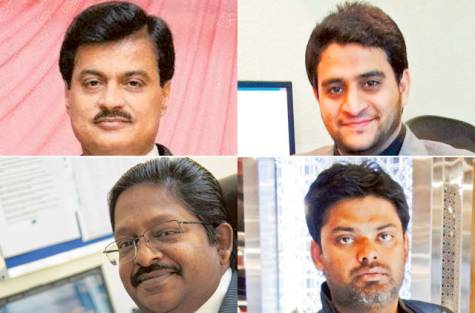Indian expatriates gripped by election fever
09:42AM Sat 5 Apr, 2014

Dubai: Indians in the UAE don’t expect to be directly impacted by the upcoming general elections in India, but said there is special interest and concern this voting season.
They said a “mass hysteria” for change coupled with close competition and hard-to-predict outcomes make the latest elections particularly gripping.
India goes to vote in phases from Monday to April 12 in the country’s longest ever elections. The results are expected on May 16.
Some 814 million Indians are registered to vote for their lower house of parliament, elected every five years.
This time, the number of eligible voters has jumped by 100 million.
Indians are the biggest expatriate community in the UAE.
Indians living outside India cannot vote from host countries, but generally pay close attention to elections. The interest is apparently running deeper in the newest ballot battle.
A number of Indian residents told Gulf News there is much “hype”, but no clear winner.
The ruling Congress party is competing with arch rival Bharatiya Janata Party (BJP) even as ‘third and fourth fronts’ — newcomer “anti-corruption” Aam Aadmi Party (common man’s party) and smaller regional groups — open up.
“These elections are going to be entirely different. There’s a huge amount of money the BJP spent in promoting [Narendra] Modi [as prime ministerial candidate],” said Mohamad Najib, a manager at a private company.
“And Congress is carrying a bad name because of corruption scams. Last time it was a one-sided story.”
He added: “But Congress is a smart and experienced player. They’ll be able to throw a surprised card at the last moment. I think it’s going to be an alliance in power led by Congress.”
Najib said Non Resident Indians (NRIs) focus “mainly on the dirham-rupee exchange rate” when it comes to assessing the impact of new governments back home.
Businessman Manoj Motiwala added agreed the elections are “far more different, there’s a personality conflict this time”, referring to Modi versus Congress vice president Rahul Gandhi.
“It will be good if it’s Modi, who’s more honest compared to the rest. People had given Congress a chance.”
Motiwala added that overseas Indians have been gripped by election fever.
“I think NRIs take interest owing to a sense of patriotism rather than getting any direct benefit out of it,” he said.
Another Indian expatriate, Tarique Sayed, said: “I don’t think [the elections] affect NRIs in a big way. I think [potential] currency fluctuations after elections are their main interest.
“I’m following the elections but not very closely. I think there’s a lot of hype created by the media.”
He added that the latest polls are “very difficult to predict. It’s a close race but in the end I think it’s going to be Congress with the support of other smaller parties.”
Sarfaraz Jukaku, an Indian resident of Dubai, said the elections have wider significance.
“Of course it affects NRIs. There’s no direct impact here but at the end of the day, we have to go back to our country. And the government rules and policies that’ll come after the elections affect our family and loved ones back home,” Jukaku explained.
He added: “This time the elections are different. The competition is really there. AAP shot up out of nowhere. I think they’re doing a good job.
“But no one will be able to bring in a majority. I think it’ll be some kind of coalition or alliance that’ll end up in power.”
The AAP rode to popularity on a wave of anti-corruption rhetoric.
Jukaku said: “Whether it’s Congress or BJP, corruption is a concern. There’s no law to say a minister must be questioned and investigated because the corrupt ones are behind making and enforcing the law.”
Such concerns often get in the way of NRIs’ plans to give back to their country, said Christopher Abraham, professor of leadership and head of Dubai campus, SP Jain School of Global Management.
“Their contributions are not just financial, but social as well. But concerns over those initiatives taking on a political colour, or falling victim to corruption, often takes away the will,” Abraham said.












